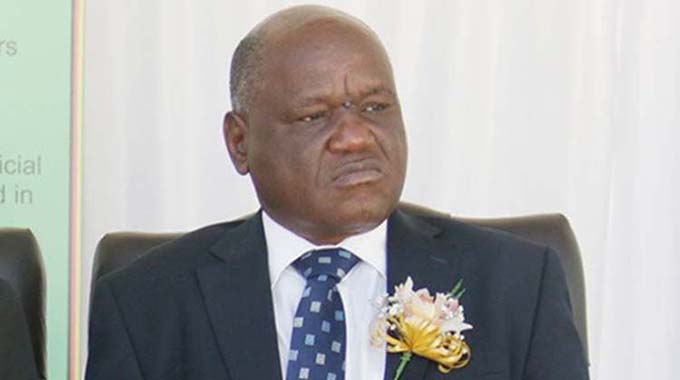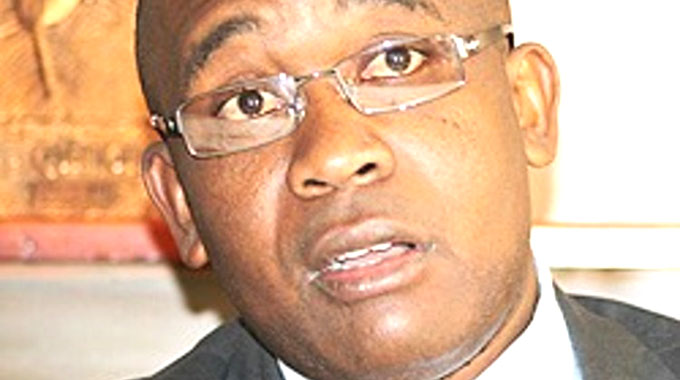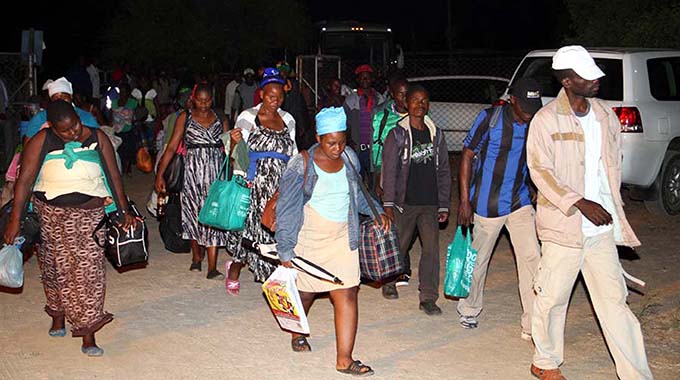Judiciary posts major milestones in 2019

Fidelis Munyoro Chief Court Reporter
The curtain is coming down on the 2019 Legal Year after the judiciary registered some milestones in the enrichment of the justice delivery system and superior courts delivered ground-breaking judgments which will go a long way in developing the country’s jurisprudence.
The opening of the state-of-the-art Labour Court close to the Harare Magistrates’ Courts was a major development in the judiciary faced with a myriad of challenges and the difficult times the country is going through.
The imposing courthouse that was commissioned by President Mnangagwa in May this year was a historic development in the Second Republic’s quest to enhance the administration of labour justice in the country.
The Labour Court is viewed as an integral component in the Government’s “Ease of Doing Business Reforms”.
During the same month Chief Justice Luke Malaba toured the new Chinhoyi magistrates’ courthouse that is under construction.
The building which was expected to be complete by end of this month has the potential to accommodate Zimbabwe’s upper courts when completed.
According to the contractors engaged by the Ministry of Local Government and Public Works, the single-storey court building will have eight courtrooms, 53 offices, two libraries and 16 cells.
The year also saw the swearing in of two Supreme Court judges – Justices Charles Hungwe and Nicholas Mathonsi, to fill two vacant posts that had arisen in the court, which handles appeals.
The two were among the five judges of the High Court who were eyeing the two posts and had to undergo public interviews. The other three were Justices Felistus Chatukuta, Alfas Chitakunye and Samuel Kudya.
The last quarter of year also saw the High Court realising its full strength after the swearing of five new judges taking the total number of judges to 38.
The new judges – Justices Webster Chinamora, Christopher Dube-Banda, Paul Msithu, Evangilista Kabasa and Sunsley Zisengwe — are the latest to join the High Court bench. They were sworn-in on September 4 this year and pledged to work hard to deliver results.
The much awaited full reasons for the Constitutional Court ruling upholding President Mnangagwa’s victory in last year’s harmonised elections, were recently released and made public.
The ruling said the petition by MDC-Alliance leader Mr Nelson Chamisa was premised on bald and unsubstantiated rigging claims.
The full bench of the Constitutional Court unanimously found no fault with the conduct of the election which Mr Chamisa challenged its legality claiming massive rigging in favour of President Mnangagwa.
The MDC-Alliance leader raised numerous allegations of vote-buying, ghost polling stations, denial of the right to vote for 40 000 teachers, skewed coverage by the public media and inflation of figures, among others.
But the apex court made it clear that the onus to prove the irregularities lay with Mr Chamisa, but he failed to prove his claims.
In the final analysis, the court found that Mr Chamisa and his party failed to place before it credible evidence to prove the irregularities he levelled against the Zimbabwe Electoral Commission.
The year also saw National Social Security Authority (NSSA) sweating over an Administrative Court landmark ruling allowing a pensioner to receive his dues before attaining the statutory minimum age of retirement.
The Administrative Court ruled that former Chitungwiza Town Council finance director Mr Goodway Mvududu was entitled to receive his pension from the age of 59 as this was the time when he retired from pensionable employment.
According to NSSA statutes, the minimum age of retirement is 60 for special occupations with the general NSSA pensionable age being 65.
Mr Mvududu successfully argued in the lower court that he was entitled to a periodical payment of a retirement pension by virtue of having retired from employment and because in his case contributions of not less than 120 months had been paid.
The ruling prompted the multi-billion-dollar State pension entity to approach the Supreme Court challenging the lower court’s decision, amid fears the Administrative Court ground-breaking ruling, is likely to see NSSA facing more people sent on early retirement.
In another landmark ruling a High Court judge Justice Sylvia Chirau-Mugomba called for a countrywide database of married individuals to reduce bigamy, in a development likely to inspire changes in the proposed Marriages Bill that seeks to have unregistered customary law unions listed.
Bigamy occurs when a legally married person enters into a second marriage contract under the Marriages Act with another person without dissolving the first marriage.
Currently, individuals wishing to marry are required to provide passport size colour photographs of their images and fingerprints to discourage bigamy.
However, Justice Chirawu-Mugomba said this was not enough in this era of technology adding that there was nothing to prohibit the Registrar of Marriages from having a real-time online database for all married persons.
The judge made the remarks while handing down judgment in the case in which a widow was suing the Master of the High Court and another heir of an estate over maintenance from a deceased estate.
Justice Chirawu-Mugomba’s remarks come against the backdrop of the proposed Marriages Bill and proposed criminal sanctions for those found lying under oath.
She said the Registrar of Marriages could also consider obtaining affidavits from intending spouses declaring that they are not married to anyone else under customary law (including unregistered customary law unions) or general law in addition to a certificate of present status.
The widow had approached the High Court seeking a review of the Master of High Court’s decision to dismiss her application for maintenance in the estate of her late husband.
The year under review also saw prominent people being acquitted in high-profile corruption cases and criminal abuse of office. Leading the pack was the business tycoon Wicknell Chivayo, who in March this year was acquitted on a US$5,6 million fraud charge that emanated from a botched Zimbabwe Power Company (ZPC) solar project deal.
The court ruled that the charges against Chivayo were driven by malice and any dispute between the power utility and the businessman could be dealt with through civil litigation and not the criminal route that had been undertaken by the State.
In the following month, the court also cleared former ICT Minister Supa Mandiwanzira of all criminal abuse charges he was facing since he left Cabinet.
He was facing at least 20 years in prison or paying a steep fine had he been convicted.
Mandiwanzira’s charges were that he allegedly breached procurement regulations after awarding a US$218 million contract to Megawatt, a South African-based consultancy company, on behalf of NetOne.
But in his defence, the ex-minister claimed that his involvement had made NetOne recover as much as US$30 million that the State-owned mobile network operator had lost to Huawei.
In October another high-profile figure and former Zanu-PF political commissar Saviour Kasukuwere was acquitted of criminal abuse of public office. It was the court’’s ruling that the trial magistrate who handled the case was conflicted.








Comments